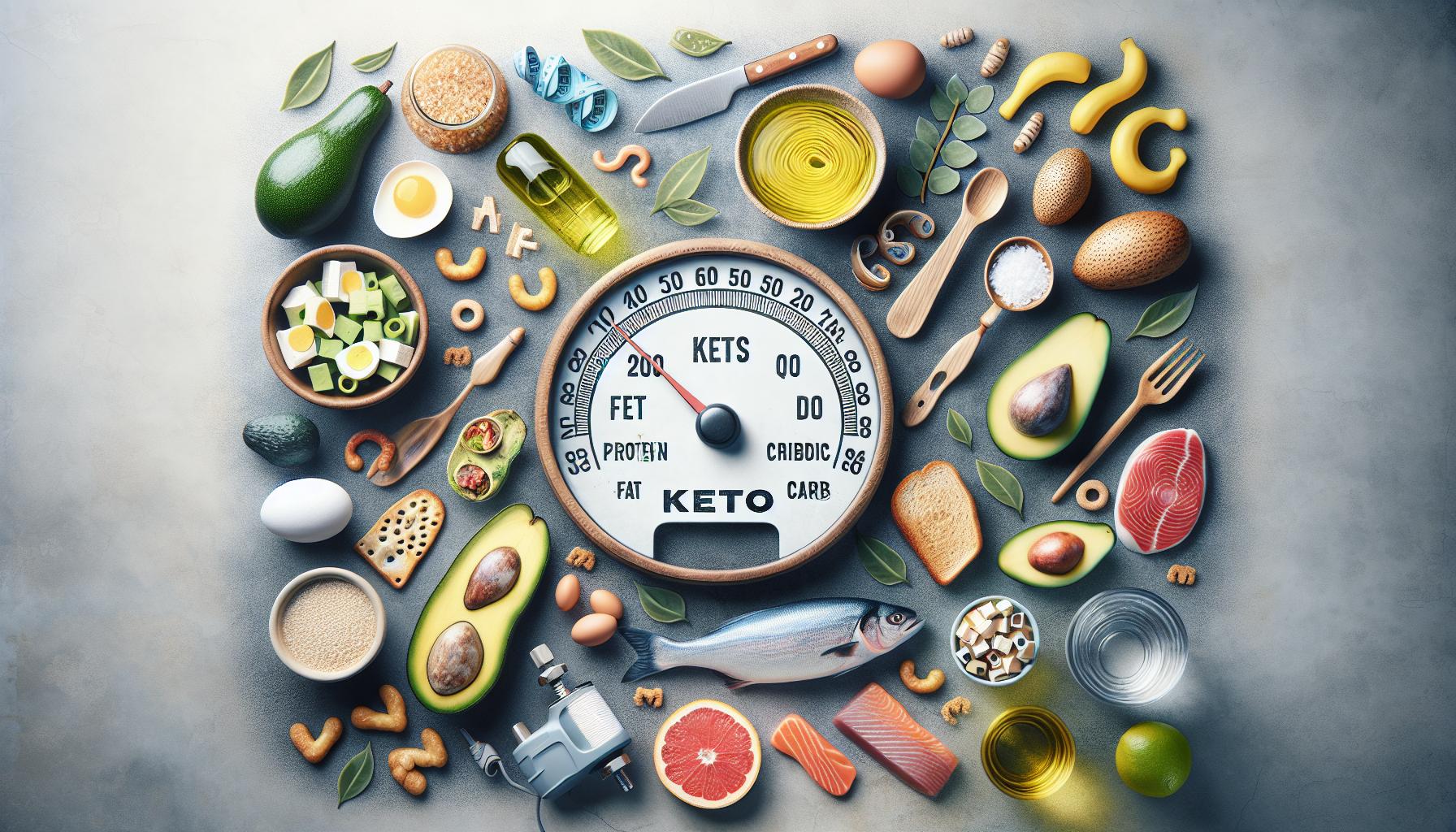
Introduction Paragraph
So, you are wondering – what is a keto diet for diabetics? In layman’s terms, a ketogenic, or keto, diet for individuals with diabetes is all about managing carbohydrate consumption and boosting fat intake. This dietary strategy aims to enhance insulin efficiency and regulate blood sugar levels. Throughout this article, we’ll delve deeper into the intricacies of ketogenic food regimens, their relation to diabetes management, and the health benefits they propose. We’ll also tackle common misconceptions, providing clarity for those contemplating jumping on the keto bandwagon.
Unpacking the Keto Diet Concept
Broadly defined, a ketogenic diet is a low carb, high fat diet. It drastically reduces carbohydrates intake, replacing it with fat. This metabolic change shifts the body’s natural energy source from burning carbs to burning fats. Known as ketosis, this state of being is what makes the keto diet an alluring prospect for people who live with diabetes.
The Underlying Principle of the Keto Diet
The beauty of the keto diet lies in its simplicity. It isn’t rocket science. In essence, the keto diet drastically curbs your carb intake, replacing it with fats. By doing so, your body enters a metabolic state, known as ketosis, where it starts burning fat for energy rather than carbs. It’s this mechanism that has made the ketogenic diet as popular as a pop star among diabetics.
Why Keto Diet and Diabetes?
The keto diet triggers weight loss by prompting the body to burn fat. On paper, weight loss can effectively manage diabetes symptoms. Furthermore, its emphasis on consuming more proteins and healthy fats rather than carbs naturally results in lower blood sugar levels, a well-known problem among the diabetic population.
Balancing Act of Blood Sugar Level
Going keto essentially means forsaking the lion’s share of carbs from your dietary regimen. With blood sugar levels being closely tied to carb intake, it’s no wonder the keto approach is grabbing eyeballs in the diabetic community. By keeping a tight leash on blood sugar spikes, the keto diet helps maintain equilibrium in an otherwise volatile and tumultuous diabetic body.
The Pros of a Keto Diet for Diabetics
Reduced carb consumption can lead to weight loss, a beneficial side effect for individuals with diabetes. This dietary shift can also lower unhealthy cholesterol levels, reduce high blood pressure, and even improve skin health. The science behind these benefits is less about rocket propellants and space shuttles, and more about basic biology. When you’re consuming fewer carbs, you’re not only losing weight, but you’re also reining in rampant blood sugar levels.
Keto in Action: More than Just Weight Loss
A harmonic symphony of health benefits is a tasteful side dish on the keto menu. It’s not just weight loss that a keto diet caters to; it’s a master chef that concocts a healthy potion for your overall well-being. As it drums down the carbs and rampages through the fats, the keto diet gives a new rhythm to the dance of your life.
Managing the Consequences of a Keto Diet
Shifting to a ketogenic diet may not always be a bed of roses. The so-called ’keto flu’ can leave you feeling as if you’ve been hit by a freight train. Additionally, long-term adherence may bring about nutrient deficiencies. It’s important to balance the pros with the cons, as jumping into the keto pool head-first might, paradoxically, dunk your health.
The Flip Side of the Keto Coin
Despite its promising benefits, the keto diet isn’t without its pitfalls – think of dizziness, irritability, and nutrient deficiencies. It’s a double-edged sword with the blade of health benefits on one side and the potential reasons for caution on the other.
Conclusion Paragraph
In summary, the ketogenic diet is a potential game-changer for individuals living with diabetes, supplying a fresh arsenal to battle elevated blood sugar levels and promoting weight loss. This low-carb, high-fat diet may open the door to numerous health benefits; however, it’s also crucial to note potential drawbacks. We hope this article provides you with comprehensive insights into the workings, potential benefits and consequences of a keto diet for diabetics.
Frequently Asked Questions
1. Is a keto diet safe for diabetics?
While a keto diet can provide benefits like weight loss and better blood sugar control for diabetics, it’s essential to get the green light from your healthcare provider before making significant dietary changes.
2. Can a keto diet reverse diabetes?
Although research suggests that ketogenic diets can help control blood sugar and promote weight loss, it’s important to understand that they’re not a miracle cure for diabetes.
3. What foods should I eat on a keto diet?
The focus of a keto diet should be on foods high in fat and low in carbs such as meats, eggs, dairy, avocados, and nuts. Steer clear of sugar-sweetened drinks, grains, and high-carb fruits and vegetables.
4. Are there any side effects of a keto diet?
Common side effects when starting a keto diet include fatigue, dizziness, irritability, and changes in bowel habits. Over time, these symptoms usually subside.
5. How fast can I expect results from a keto diet?
Results from a ketogenic diet would depend on your adherence to the diet, your current health status and your physical activity level. Although some people notice changes within a few weeks, it might take several months for others.


